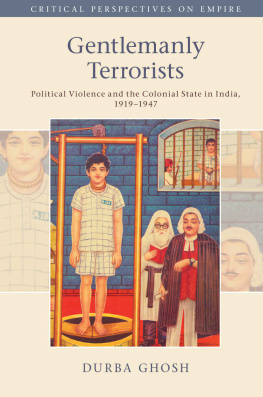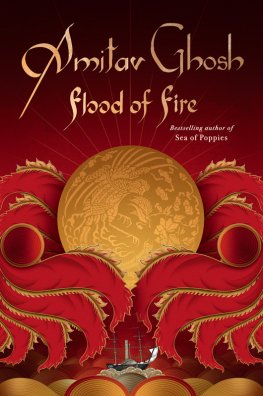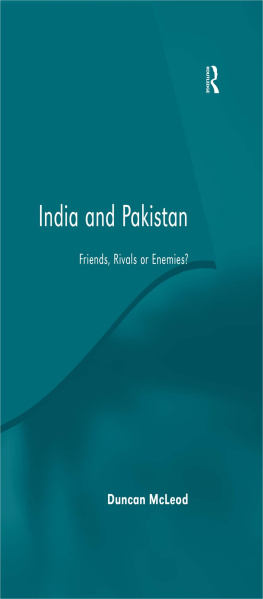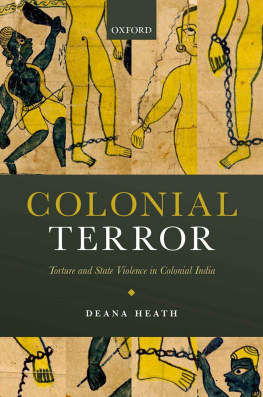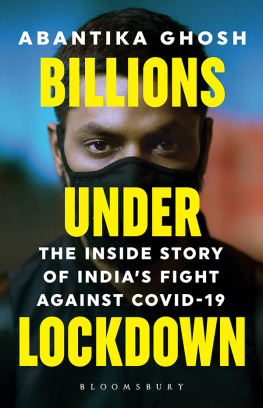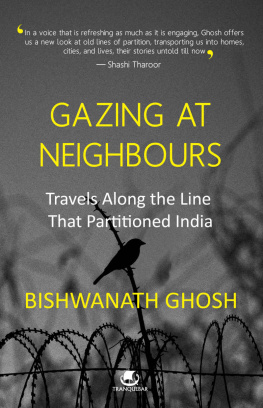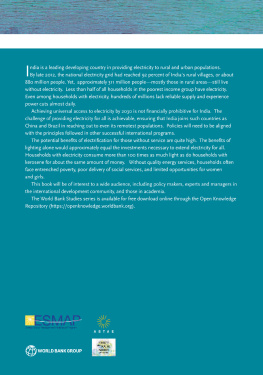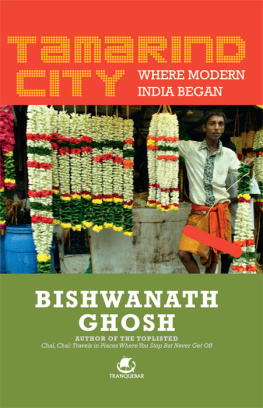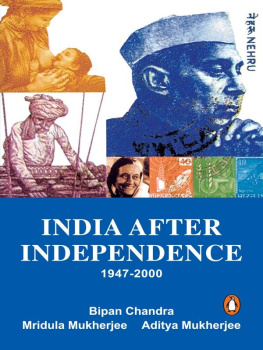Durba Ghosh - Gentlemanly Terrorists: Political Violence and the Colonial State in India, 1919–1947
Here you can read online Durba Ghosh - Gentlemanly Terrorists: Political Violence and the Colonial State in India, 1919–1947 full text of the book (entire story) in english for free. Download pdf and epub, get meaning, cover and reviews about this ebook. year: 2017, publisher: Cambridge University Press, genre: Politics. Description of the work, (preface) as well as reviews are available. Best literature library LitArk.com created for fans of good reading and offers a wide selection of genres:
Romance novel
Science fiction
Adventure
Detective
Science
History
Home and family
Prose
Art
Politics
Computer
Non-fiction
Religion
Business
Children
Humor
Choose a favorite category and find really read worthwhile books. Enjoy immersion in the world of imagination, feel the emotions of the characters or learn something new for yourself, make an fascinating discovery.
- Book:Gentlemanly Terrorists: Political Violence and the Colonial State in India, 1919–1947
- Author:
- Publisher:Cambridge University Press
- Genre:
- Year:2017
- Rating:5 / 5
- Favourites:Add to favourites
- Your mark:
- 100
- 1
- 2
- 3
- 4
- 5
Gentlemanly Terrorists: Political Violence and the Colonial State in India, 1919–1947: summary, description and annotation
We offer to read an annotation, description, summary or preface (depends on what the author of the book "Gentlemanly Terrorists: Political Violence and the Colonial State in India, 1919–1947" wrote himself). If you haven't found the necessary information about the book — write in the comments, we will try to find it.
Durba Ghosh: author's other books
Who wrote Gentlemanly Terrorists: Political Violence and the Colonial State in India, 1919–1947? Find out the surname, the name of the author of the book and a list of all author's works by series.
Gentlemanly Terrorists: Political Violence and the Colonial State in India, 1919–1947 — read online for free the complete book (whole text) full work
Below is the text of the book, divided by pages. System saving the place of the last page read, allows you to conveniently read the book "Gentlemanly Terrorists: Political Violence and the Colonial State in India, 1919–1947" online for free, without having to search again every time where you left off. Put a bookmark, and you can go to the page where you finished reading at any time.
Font size:
Interval:
Bookmark:
Gentlemanly Terrorists
In Gentlemanly Terrorists , Durba Ghosh uncovers the critical place of revolutionary terrorism in the colonial and postcolonial history of modern India. She reveals how so-called bhadralok dacoits used assassinations, bomb attacks, and armed robberies to accelerate the departure of the British from India and how, in response, the colonial government effectively declared a state of emergency, suspending the rule of law and detaining hundreds of suspected terrorists. She charts how each measure of constitutional reform to expand Indian representation in 1919 and 1935 was accompanied by emergency legislation to suppress political activism by those considered a threat to the security of the state. Repressive legislation became increasingly seen as a necessary condition to British attempts to promote civic society and liberal governance in India. By placing political violence at the center of Indias campaigns to win independence, this book reveals how terrorism shaped the modern nation-state in India.
Durba Ghosh is Associate Professor at Cornell University. Her research interests focus on understanding the history of British colonialism on the Indian subcontinent, the history of colonial governance and law, gender, sexuality, and the tensions between security and democracy in modern liberal democracies, such as India and the United States. Previous works include Sex and the Family in Colonial India: The Making of Empire (Cambridge University Press), Decentring Empire: Britain, India and the Transcolonial World , co-edited with Dane Kennedy, and a number of articles and chapters for the Oxford Handbook of the History of Terrorism , the American Historical Review , Gender and History , and Modern Asian Studies .
Professor Catherine Hall
University College London
Professor Mrinalini Sinha
University of Michigan
Professor Kathleen Wilson
State University of New York, Stony Brook
Critical Perspectives on Empire is a major series of ambitious, cross-disciplinary works in the emerging field of critical imperial studies. Books in the series explore the connections, exchanges, and mediations at the heart of national and global histories, the contributions of local as well as metropolitan knowledge, and the flows of people, ideas, and identities facilitated by colonial contact. To that end, the series not only offers a space for outstanding scholars working at the intersection of several disciplines to bring to wider attention the impact of their work, it also takes a leading role in reconfiguring contemporary historical and critical knowledge, of the past and of ourselves.
A full list of titles published in the series can be found at: www.cambridge.org/cpempire
Gentlemanly Terrorists
Political Violence and the Colonial State in India, 19191947
Durba Ghosh
Cornell University, New York


University Printing House, Cambridge CB2 8BS, United Kingdom
One Liberty Plaza, 20th Floor, New York, NY 10006, USA
477 Williamstown Road, Port Melbourne, VIC 3207, Australia
4843/24, 2nd Floor, Ansari Road, Daryaganj, Delhi 110002, India
79 Anson Road, #0604/06, Singapore 079906
Cambridge University Press is part of the University of Cambridge.
It furthers the Universitys mission by disseminating knowledge in the pursuit of education, learning, and research at the highest international levels of excellence.
www.cambridge.org
Information on this title: www.cambridge.org/9781107186668
DOI: 10.1017/9781316890806
Durba Ghosh 2017
This publication is in copyright. Subject to statutory exception and to the provisions of relevant collective licensing agreements, no reproduction of any part may take place without the written permission of Cambridge University Press.
First published 2017
Printed in the United Kingdom by Clays, St Ives plc
A catalogue record for this publication is available from the British Library.
ISBN 978-1-107-18666-8 Hardback
ISBN 978-1-316-63738-8 Paperback
Cambridge University Press has no responsibility for the persistence or accuracy of URLs for external or third-party internet websites referred to in this publication and does not guarantee that any content on such websites is, or will remain, accurate or appropriate.
For Robert, Ravi, and Lila
This book is very much a history of the present and was informed by several historical moments. I began thinking about this project in 1997, as India celebrated a half-century of independence, and profiles of former revolutionaries and terrorists appeared in all corners of the vernacular press in Kolkata, where I lived for much of that year as a PhD student. As a result of this major national anniversary, various national and regional newspapers ran pieces about Indias struggle for independence, often reprinting historical front pages from the 1920s, 30s, and 40s and profiling famous figures in the movement to rid India of British colonial rule. Bengali-language newspapers and magazines profiled Bengali freedom fighters who had been involved in some kind of political violence or militant nationalism. Some of the names that appeared in the newspapers were familiar because they were the names of Kolkata streets and monuments: Jatin Das Park and B. B. D. Bag, which stood for Benoy, Badal, and Dinesh, the assassins at the Writers Building in December 1930. English-language newspapers, on the other hand, focused on figures who were well-known nationalists, Gandhi, Nehru, Jinnah, Chittaranjan Das, and Subhas Chandra Bose and their relatively civil and nonviolent protests against the British colonial government. This contrast provoked me to think (again) about why we write history and for whom we write. Because I had been raised and educated in the United States and had learned the history of India only in graduate school, I was struck by how little I knew of these figures and their participation in the struggle for Indias independence. I was surprised to learn that many of these men and women were staples in the textbook education offered to children in West Bengal. In Bengal, most schoolchildren know the importance of figures such as Khudiram Bose, Prafulla Chaki, Kanai Lal Dutta, Surja Sen, Ganesh Ghosh, Bina Das, Kalpana Dutta, and the others who I have written about here.
Initially, I imagined that this project would attempt to reconcile these competing narratives, between English and Bengali histories, between
My imaginary of this project was utterly transformed by the events of September 11, 2001, which changed how many of us in the United States began to think about the relationship between violent acts of terrorism and their growing centrality in national and international politics, as democratic governments confronted the challenges of maintaining civil liberties alongside widely felt anxieties about global security. As a result of the dramatic events surrounding September 11, the United States has been the architect of a growing number of extra-judicial laws to limit the rights of those who are classified as enemy non-combatants. Americas prolonged use of the detention camp at Guantanamo and the inability of successive administrations to close the camp has made Guantanamo, in the words of my late friend, Nasser Hussain, a shorthand for a larger set of formations. In the years since Guantanamo opened in late 2001, detainees have gone on hunger strike, attempted and committed suicide, petitioned for better conditions, been repatriated, and subjected to torture, all in the name of a war on terror that seems to be escalating rather than subsiding.
Font size:
Interval:
Bookmark:
Similar books «Gentlemanly Terrorists: Political Violence and the Colonial State in India, 1919–1947»
Look at similar books to Gentlemanly Terrorists: Political Violence and the Colonial State in India, 1919–1947. We have selected literature similar in name and meaning in the hope of providing readers with more options to find new, interesting, not yet read works.
Discussion, reviews of the book Gentlemanly Terrorists: Political Violence and the Colonial State in India, 1919–1947 and just readers' own opinions. Leave your comments, write what you think about the work, its meaning or the main characters. Specify what exactly you liked and what you didn't like, and why you think so.

